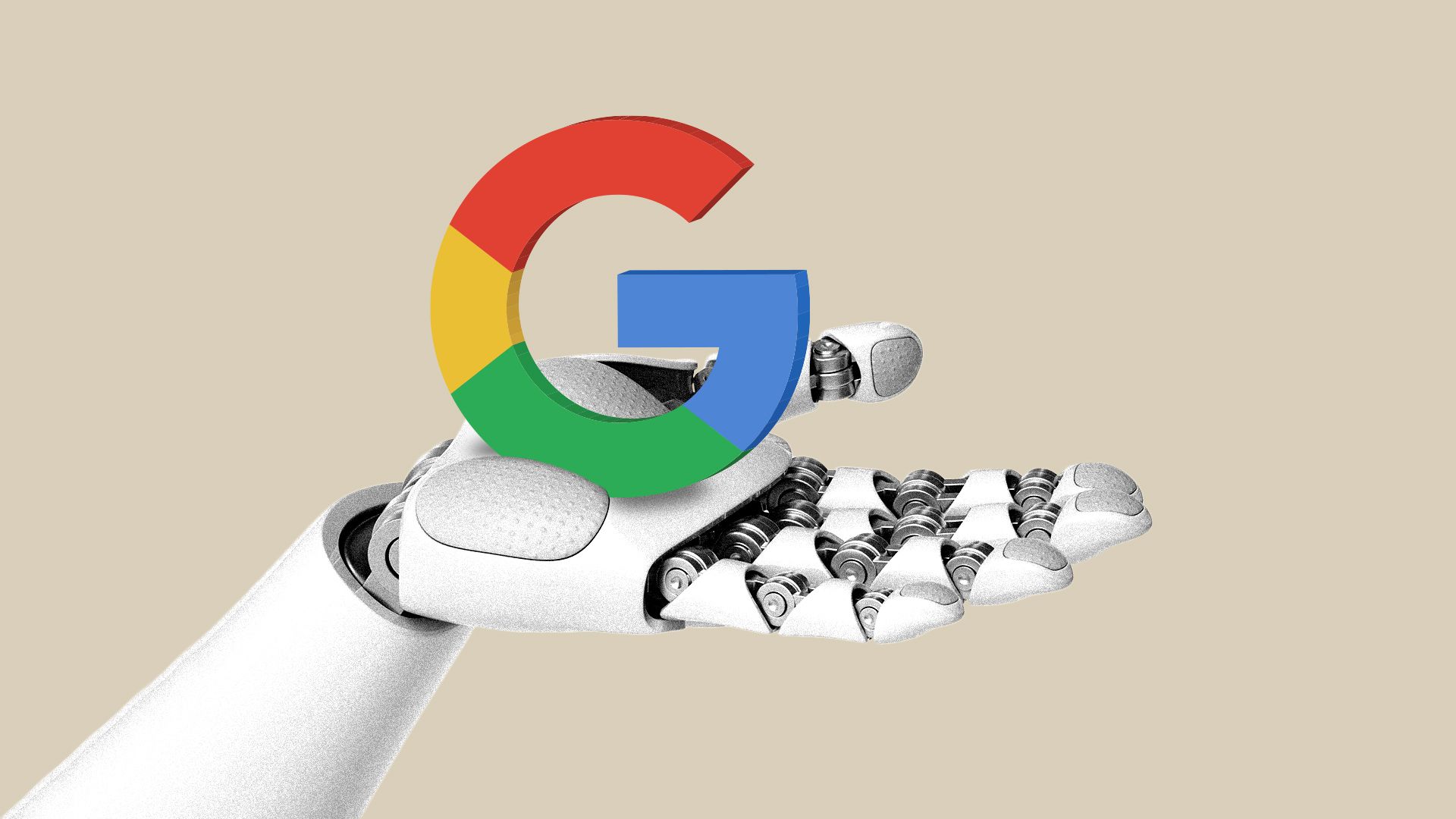At the Supreme Court, a league of software defenders for Google
Add Axios as your preferred source to
see more of our stories on Google.

Illustration: Aïda Amer/Axios
A wide array of tech companies are siding with Google in its copyright battle against Oracle — a rival to some of the companies — in filings with the Supreme Court Monday.
The big picture: The case revolves around key questions of software copyright and fair use that could have major consequences for the industry.
- A Supreme Court win for Oracle would make it easier for companies to build proprietary walls around their software — and harder for open-source oriented projects to co-exist with such code. (It would also put Google on the hook for billions in damages.)
- A Google win would let developers go on replicating code, including through the continued open use of APIs, which are ways that programs define how other programs can communicate with them.
- The briefs are a show of support for Google's vision of the future — though Oracle will also have its chance to marshal allies to try and sway the court in the coming weeks.
Context: The companies have been feuding for the last decade over whether Google illegally used parts of Oracle's Java code for its Android software. They swapped victories in lower courts before the Supreme Court in November agreed to hear the case.
Driving the news: IBM and Microsoft filed briefs at the Supreme Court in support of Google, as did consumer groups, trade associations and a collection of smaller tech companies and organizations, including Mozilla, Etsy and Reddit.
- IBM supports Google because it's concerned that applying copyright law to "open public interfaces" will hurt business and innovation, IBM general counsel Michelle Browdy said in a statement.
- "We must continue to foster an environment where companies of all sizes can use openly available interfaces to fuel the research and innovation that has reshaped our world," she said.
- Microsoft argued developers rely on "sharing, modifying, and enhancing previously developed code to create new products and develop new functionality." Without the ability to reuse functional code to create new things, "innovative follow-on development will be compromised."
Flashback: The Trump administration's solicitor general last year urged the Supreme Court not to take up the case, arguing that Google "copied 11,500 lines of computer code verbatim, as well as the complex structure and organization inherent in that code, in order to help its competing commercial product," harming Oracle in the process.
- The Obama administration also advised the Supreme Court against taking up the case during an earlier stage in the litigation.
What they're saying: Oracle said in a statement Monday that it believes the court will see through Google's "self-interested arguments."
"Google makes its money free-riding on the intellectual property and content of others. Google stole Java and killed interoperability to create its proprietary Android operating system. At bottom, Google's brief — and those bartered briefs of its supporters — stand for the remarkable proposition that stealing is easier than creating and then advance the hypocritical and ironic argument stealing is required for interoperability. "— Deborah Hellinger, head of global corporate communications, Oracle
“Today we saw a remarkable range of consumers, developers, computer scientists, and businesses saying that open software interfaces promote innovation and that no single company like Oracle should be able to monopolize creativity.”— Kent Walker, SVP of global affairs, Google
The bottom line: The software business has grown steadily more interconnected for decades, with once-possessive giants like Microsoft and IBM embracing openness. This case could shift that tide.
